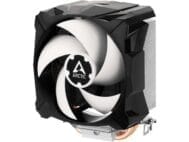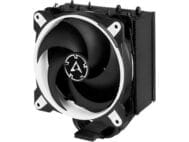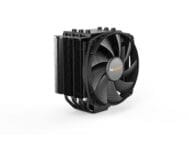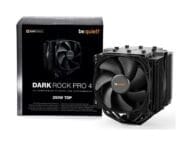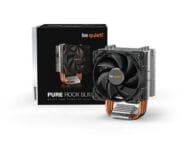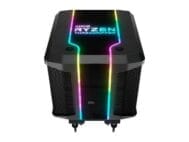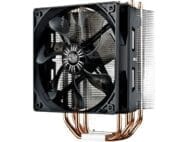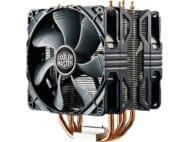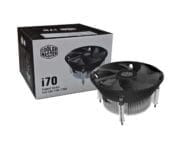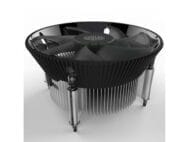CPU Fans
Keeping the Brain of Your PC Cool and Efficient
The CPU (Central Processing Unit), the heart of your computer, generates significant heat, especially under demanding workloads like gaming or video editing. A CPU cooler is essential for dissipating this heat and maintaining optimal CPU temperatures, preventing thermal throttling, and ensuring stable performance.
Showing 1–16 of 64 results

AMD Wraith Prism Thermal Solution
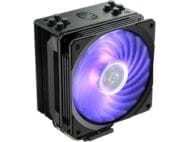
Cooler Master Hyper 212 RGB Black
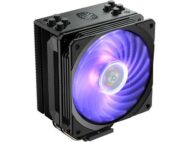
Cooler Master Hyper 212 RGB Black Edition
Choosing the Right CPU Cooler
Selecting the optimal CPU cooler involves considering several factors:
- Cooler Type: Air coolers, typically consisting of a heatsink and fan, are cost-effective and suitable for most systems. Liquid coolers, using a closed-loop system with a radiator and pump, provide more efficient cooling for high-end CPUs and overclocking.
- Socket Compatibility: Ensure the cooler you choose is compatible with the CPU socket on your motherboard (e.g., Intel LGA 1700, AMD AM5).
- Cooling Performance (TDP): Check the cooler’s TDP (Thermal Design Power) rating, which indicates the maximum amount of heat it can dissipate. Choose a cooler with a TDP rating equal to or higher than your CPU’s TDP.
- Noise Levels (dBA): Consider the noise levels of the cooler’s fan(s), especially if noise is a concern. Some coolers offer quieter operation or features like fan speed control.
- Installation and Clearance: Check the cooler’s dimensions to ensure it fits within your computer case and doesn’t interfere with other components (e.g., RAM modules, graphics card).
By carefully evaluating these factors and considering your CPU’s thermal demands, you can choose a CPU cooler that effectively dissipates heat, keeps your system running smoothly, and potentially even allows for some overclocking headroom.

